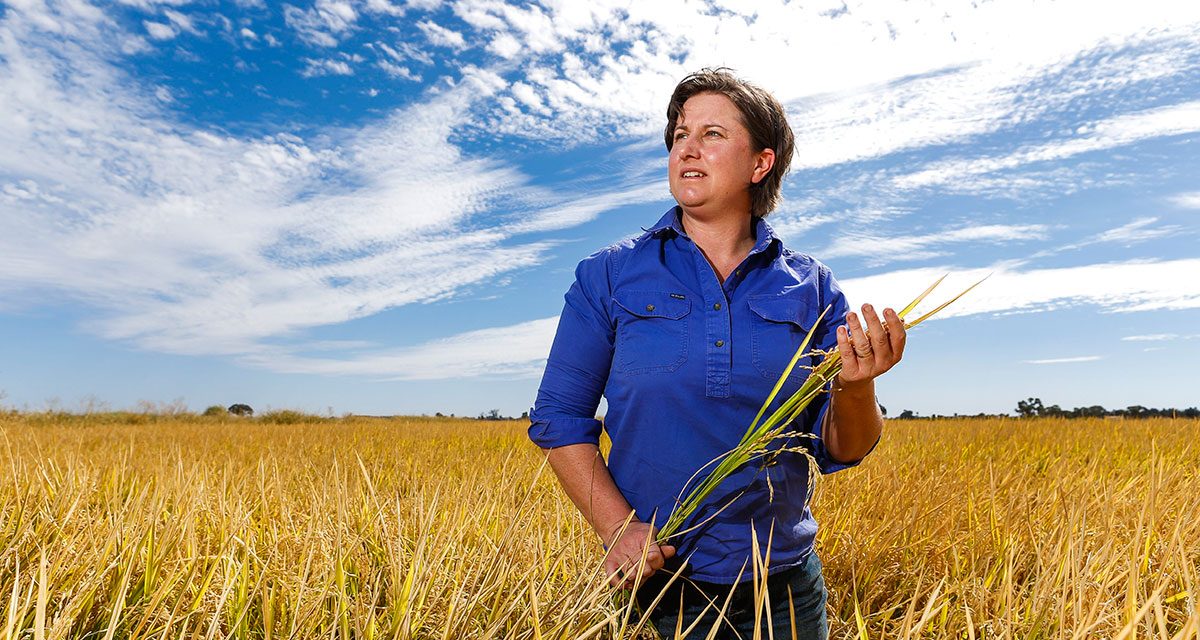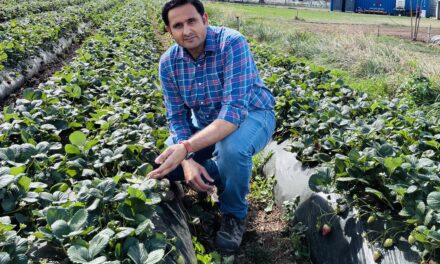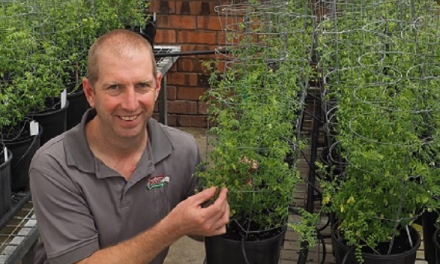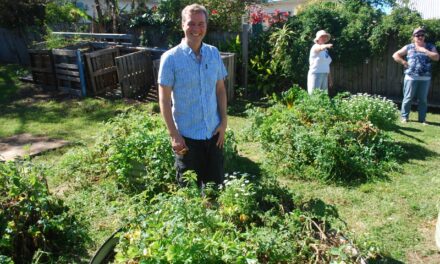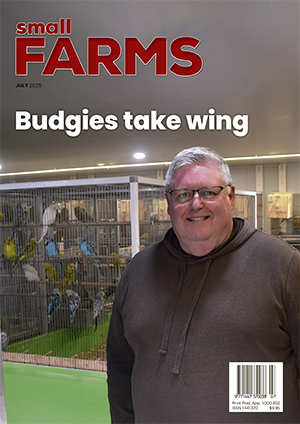Shelley Scoullar is a can-do woman, passionate about agriculture and passionate about water.
Growing up on a rice farm in Deniliquin left a lasting impression on Shelley.
“I loved being part of the family farm and I was always happy to help out doing whatever jobs I could,” Shelley said.
When Shelley left school, she was encouraged to head out into the big wide world and obtain a degree and once armed with her science degree taught in Adelaide for seven years.
But she could never quite ever shake off her love for farming – big or small.
In 2005 she made a big announcement to her family.
She wanted to return home to farm and her dad, John Hand, joked “whatever you buy better be close by then”.
In his wildest dreams he would have never guessed how close, because, as luck would have it, three weeks later the farm across the road from her parents came on the market – and Shelley and her family were on the move.
“It was just so fortuitous. My husband was made redundant about the same time and in the end it was just meant to be,” Shelley said.
Shelley runs the property while her husband works off farm.
“Dad and I work together, but I manage my own farm and make all my own decisions.”
Every year, water permitting, Shelley grows around 35ha of rice.
“I love the fact that I can produce roughly 2.5 million serves of rice from what I grow here. I am just a little fish in the industry but it makes me very proud to think I can produce something of that magnitude.”
Running the farm on her own has never daunted Shelley.
“At the start I used to go to farmer meetings and I was the only female there, but because I grew up around here everyone just accepted me as part of the scenery.”
She said as a woman she sometimes had to think outside the square to get things done because physically she is not as strong as a man, but at the end of the day most things she manages on her own.
“I love the environment, I love being outside and I love producing food. It is a challenge to produce good yields and still have a high quality product but I put a lot of time into my management decisions.”
Shelley said rice is an intensive crop to grow.
“I spend a lot of time fussing because I am a fussy farmer – I put in all the little one per cents which make a huge difference.”
Shelley said chasing ducks and being on top of pest and weed management during establishment helps to set up a good crop.
Not growing consecutive rice crops in the same area also helps reduce problems from aquatic weeds.
“You can get complacent but I like to see the results at harvest time.”
Contrary to what a lot of people think, growing rice is not use excessive amounts of water, especially when it is grown the right way and on the right soil type.
“The habitat it creates is just amazing and the noise of the frogs can at times deafen you, they are so loud. Half the time it is the attraction of the wildlife rice supports, that makes it so enjoyable grow.”
After the crop is harvested, it usually makes an ideal place to grow an alternative crop.
“In 2015 I grew a barley crop on a fallow rice paddock and it returned $800 per ha, I did the same thing on dryland and returned $330 per ha, having moisture in the soil from the rice crop makes a massive difference.”
Shelley’s passion for farming and her local community has led her to become heavily involved in the Speak Up Campaign – a voice for rural communities when it comes to water and the Murray Darling Basin.
“I feel very strongly about the issue of water and it’s not about one particular industry, it is about agriculture as a whole and the affect taking it away is having on our rural communities.”
Deniliquin has been a thriving rural area renowned for its ability to grow rice, although this is mainly dependent on sufficient water allocation.
“During the latter years of the millennium drought, the southern hemisphere’s biggest rice mill at Deniliquin was closed because there was insufficient crop to mill.
“As a consequence we were unable to provide food for 20 million people a day throughout the world, including developing countries and that is a tragedy.”
Shelley said the southern basin had been the hardest hit region when it comes to the Murray Darling Basin Plan and it is time the community unites to ensure agriculture of any size can survive in the future.
“It doesn’t matter what you farm, what size you are, or where you are, none of us can survive if we don’t have water.
“The reliance on the Murray River to fix everyone else’s problem is occurring because self-interested politicians are more concerned about environmental votes, then investigating sensible solutions that will benefit the entire Murray Darling Basin- farmers and our communities.”

